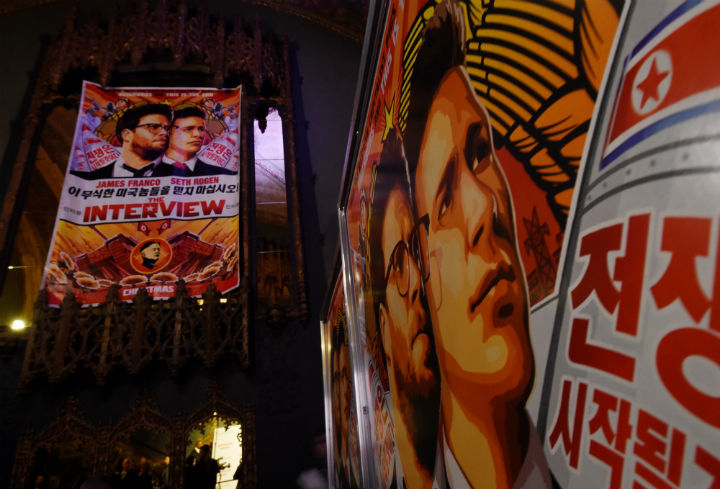Surfing the Internet isn’t an option for most North Koreans, but the regime of Kim Jong-un has reportedly invested greatly in an elite team of hackers that is now accused of a brazen cyber-attack on Sony Pictures.

The Federal Bureau of Investigation (FBI) claims to have a clear link between the aggressive and unpredictable dictatorship and the cyber-attack that lead to the leaks of five yet-to-be-released motion pictures, a trove of Sony employees’ personal information and embarrassing e-mails from executives.
Now, all eyes are on North Korea’s so-called Bureau 121 — a reported 1,800-strong team of hackers, specially trained to carry out international espionage.
READ MORE: Timeline: How the Sony Pictures hacking scandal unfolded
The bureau is a part of the government’s General Bureau of Reconnaissance, along with two other units dedicated to carrying out cyber-espionage and hacking.
Various reports suggest the regime’s combined hacking squads could employ as many as 3,000 people.
If the FBI is correct, elite North Korean hackers have the know-how to bring a major company to its knees.
READ MORE: Hackers warn Sony not to release ‘The Interview’ in any form
Many international news organizations are relying on the accounts of a North Korean defector by the name of Jang Se-yul, who escaped to neighbouring South Korea six years ago.
- Enter at your own risk: New home security camera aims paintballs at intruders
- Boston Dynamics unveils ‘creepy’ new fully electric humanoid robot
- Nova Scotia scraps spring bear hunt idea, public ‘very divided’ on issue
- Ontario First Nation calls for chemical plant to be shut down amid ‘dangerously high’ benzene levels
He told Reuters, in Seoul, North Korea’s “strongest weapon is cyber.” Jang explained how handpicked trainees get their cyber-espionage and hacking training at what’s called the University of Automation — the computer science wing of the country’s military college. One hundred graduates a year are selected to join Bureau 121 after completing five years, he explained.
In a separate interview with CNN, Jang gave his perspective on how the reclusive state grew its hacking program.
“The world has the wrong view of the North Korean state. … With that incorrect world view, North Korea was able to increase its ability to launch cyber-attacks,” he said.
READ MORE: Should the Sony hacking be considered cyber-warfare?
And while North Korean citizens don’t have access to a personal computer, those who work at Bureau 121, also called Unit 121, are a privileged bunch.
“Incentives for North Korea’s cyber experts are very strong … they are rich people in Pyongyang,” Jang told Reuters.
“It is a great honor for them. It is a white-collar job there and people have fantasies about it,” another defector, Kim Heung-Kwang, told Reuters.
The FBI asserts the Sony hacking bears the hallmarks of previous attacks attributed to North Korea.
“Technical analysis of the data deletion malware used in this attack revealed links to other malware that the FBI knows North Korean actors previously developed. For example, there were similarities in specific lines of code, encryption algorithms, data deletion methods, and compromised networks,” the FBI said in its statement on Friday.
North Korea’s hackers have allegedly carried out significant attacks before, hitting about 30,000 computers at South Korean financial and media company networks in 2011. South Korea also blamed the North for major cyber-attack on Nonghyup Bank in 2011, that prevented 30 million customer from using automated tellers or online banking.
With files from Global News Tech Reporter Nicole Bogart and The Associated Press


Comments